Workshop Description
The INL Wireless Security Institute advances national research efforts on challenges associated with the secure use of 5G & beyond and related spectrum. The 4th INL Wireless Security Workshop will focus on the security of 5G connected vehicles critical to DoD, DOT and others. The 3GPP security standards will also be summarized for common understanding of the 5G security procedures.
Workshop Details
WHEN:
Wednesday, March 30, 2022
8:30 AM-2:00 PM MST
(10:30 AM-4:00 PM EST)
Thursday, March 31, 2022
8:30AM-12:00PM MST
(10:30AM-2:00PM EST)
WHERE: Virtual online event
Once registration is confirmed, virtual links and information will follow.
REGISTRATION INFORMATION
TO REGISTER: Click here
Please note: Only U.S. Citizen registrations are being accepted at this time.
COST: FREE
For more info on wireless security and previous WSI workshops, visit: inl.gov/wireless/wsi
Speakers
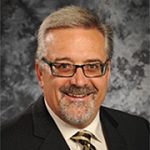 Wayne Austad is the Technical Director of the Cybercore Integration Center at Idaho National Laboratory (INL), acting as the CTO for cybersecurity R&D and leading national university collaborations on controls systems cybersecurity. Cybercore’s mission is to build an ecosystem of enduring national partnerships on an impactful R&D agenda and accelerate workforce force development. Previously, he was Director of a mission center that developed new analysis methods for targeted cyber threats, provided technical context for prioritizing mitigations, and new paradigms for information sharing between government leaders and industry. Over a 28 year INL career, he has been the technical leader or advisor to many of the foundational programs within INL’s National & Homeland Security Directorate including the Wireless Test Bed, the Critical Infrastructure Test Range, Robotics and Intelligent Systems, and Cybersecurity R&D programs.
Wayne Austad is the Technical Director of the Cybercore Integration Center at Idaho National Laboratory (INL), acting as the CTO for cybersecurity R&D and leading national university collaborations on controls systems cybersecurity. Cybercore’s mission is to build an ecosystem of enduring national partnerships on an impactful R&D agenda and accelerate workforce force development. Previously, he was Director of a mission center that developed new analysis methods for targeted cyber threats, provided technical context for prioritizing mitigations, and new paradigms for information sharing between government leaders and industry. Over a 28 year INL career, he has been the technical leader or advisor to many of the foundational programs within INL’s National & Homeland Security Directorate including the Wireless Test Bed, the Critical Infrastructure Test Range, Robotics and Intelligent Systems, and Cybersecurity R&D programs.
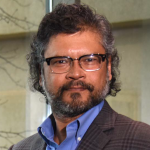 Dr. Arupjyoti (Arup) Bhuyan is a wireless researcher in the Idaho National Laboratory (INL) and the Technical Director of the INL Wireless Security Institute. The focus of his research is on secure implementation of future generations of wireless communications with scientific exploration and engineering innovations across the fields of wireless technology, cybersecurity, and computational science. Specific goals are to assure communications among critical infrastructure systems supporting control of the electric grid, emergency response, and nationwide unmanned aerial systems. Arup has extensive industry experience in wireless communications from his work before he joined INL in October, 2015. He received his Ph.D. in Engineering and Applied Sciences from Yale University. He is a senior member of IEEE.
Dr. Arupjyoti (Arup) Bhuyan is a wireless researcher in the Idaho National Laboratory (INL) and the Technical Director of the INL Wireless Security Institute. The focus of his research is on secure implementation of future generations of wireless communications with scientific exploration and engineering innovations across the fields of wireless technology, cybersecurity, and computational science. Specific goals are to assure communications among critical infrastructure systems supporting control of the electric grid, emergency response, and nationwide unmanned aerial systems. Arup has extensive industry experience in wireless communications from his work before he joined INL in October, 2015. He received his Ph.D. in Engineering and Applied Sciences from Yale University. He is a senior member of IEEE.

Dan Elmore is the Director of the Critical Infrastructure Security & Resilience division in the National & Homeland Security directorate at the Idaho National Laboratory. He also serves as the Executive Director of the INL Wireless Security Institute. Mr. Elmore provides strategic leadership in support of the research, development, and deployment of engineered solutions to protect the nation’s critical infrastructure. Significant focus areas for his organization are resilient control systems, electric power grid security, spectrum sharing, and wireless communications challenges targeted at large infrastructure, as well as military systems and platforms. Mr. Elmore has been a senior leader on INL’s national security team since 2013.
Mr. Elmore is a retired Air Force colonel with more than 27 years of active duty military experience leading organizations comprised of military, civilian, and contractor teams performing cyber operations support, communications systems, and networks engineering, national and nuclear command and control systems operations, and Continuity of Government and contingency operations planning. His last active duty assignment was at the Pentagon where he directed the largest single cyberspace office in Air Force Headquarters.
Prior to the Pentagon, Mr. Elmore served in a variety of positions and locations, including the White House, U.S. Strategic Command, Alaska, Saudi Arabia, and Afghanistan. His extensive operational experience, coupled with a fundamental knowledge of critical infrastructure and its relationship to mission assurance, exposure to the inner workings of federal and intelligence agencies, as well as broad exposure to specialized and classified capabilities, helps to advance National & Homeland Security programs.
Mr. Elmore attained his Bachelor’s degree in Electrical Engineering from Michigan Technological University, Master’s degree in Systems Technology from the Naval Postgraduate School, and Master’s degree in Computer & Information Resources Management from Webster University. He is a Life Member of the Air Force Association, Life Member of the Armed Forces Communications Electronics Association, and a Senior Member of the Institute for Electrical & Electronics Engineers.
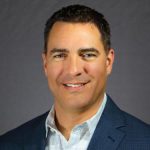 Aaron Hansen is a cybersecurity expert for the DoD’s 5G to NextG Initiative. He served 32 years in the United States Air Force as a Cyber Warfare Officer, transforming our nation’s offensive and defensive cyber capabilities. He also served as a faculty member at the University of Colorado Boulder teaching graduate cybersecurity courses. Dr. Hansen earned his doctorate in Computer Science from the University of Tulsa. His research and teaching focus includes Industrial Control Systems, Advanced Metering Infrastructures, and Digital Forensics.
Aaron Hansen is a cybersecurity expert for the DoD’s 5G to NextG Initiative. He served 32 years in the United States Air Force as a Cyber Warfare Officer, transforming our nation’s offensive and defensive cyber capabilities. He also served as a faculty member at the University of Colorado Boulder teaching graduate cybersecurity courses. Dr. Hansen earned his doctorate in Computer Science from the University of Tulsa. His research and teaching focus includes Industrial Control Systems, Advanced Metering Infrastructures, and Digital Forensics.
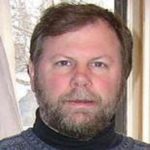 Graham Watson is a Senior Analyst for KBR assigned to the United States Department of Transportation Volpe National Transportation Systems Center located in Cambridge MA. Graham has over 30 years at the Volpe Center as both a Federal employee, and contractor. Since 2012, Graham has done research, analysis, and authored technical papers related to the vehicle cyber security environment with a focus on vulnerabilities, risks, mitigations and automotive cyber security testing for NHTSA, DHS Science and Technology (S&T), Defense Research and Development Canada (DRDC), National Motor Freight Traffic Association (NMFTA), and other organizations.
Graham Watson is a Senior Analyst for KBR assigned to the United States Department of Transportation Volpe National Transportation Systems Center located in Cambridge MA. Graham has over 30 years at the Volpe Center as both a Federal employee, and contractor. Since 2012, Graham has done research, analysis, and authored technical papers related to the vehicle cyber security environment with a focus on vulnerabilities, risks, mitigations and automotive cyber security testing for NHTSA, DHS Science and Technology (S&T), Defense Research and Development Canada (DRDC), National Motor Freight Traffic Association (NMFTA), and other organizations.
 Anthony Magnan has more than 12 years of Connected Vehicle/Automated Vehicle wireless industry experience and is currently working as the Head of Applied Vehicle Research for Verizon Wireless based in Detroit, Michigan, USA, integrating 5G use cases and Mobile Edge Compute (MEC) requirements into future vehicle platforms and the Smart City initiative. Prior to his current position, he worked as a Carrier Planning Engineer for Ford Motor Company as well as a Cellular RF Optimization Engineer and LTE Network Design Engineer. Mr. Magnan has several years of experience in 3GPP radio systems, LTE & 5G cell planning and optimization, protocol stack, and system architecture. Mr. Magnan is also a contributing member of the Wi-Fi Alliance, 5GAA, IEEE Communication Society and Society of Automotive Engineers and sits on the Technology Advisory Board of the Centre for Connected and Automated Transportation at the U.S. Department of Transportation and Mcity at the University of Michigan, Ann Arbor.
Anthony Magnan has more than 12 years of Connected Vehicle/Automated Vehicle wireless industry experience and is currently working as the Head of Applied Vehicle Research for Verizon Wireless based in Detroit, Michigan, USA, integrating 5G use cases and Mobile Edge Compute (MEC) requirements into future vehicle platforms and the Smart City initiative. Prior to his current position, he worked as a Carrier Planning Engineer for Ford Motor Company as well as a Cellular RF Optimization Engineer and LTE Network Design Engineer. Mr. Magnan has several years of experience in 3GPP radio systems, LTE & 5G cell planning and optimization, protocol stack, and system architecture. Mr. Magnan is also a contributing member of the Wi-Fi Alliance, 5GAA, IEEE Communication Society and Society of Automotive Engineers and sits on the Technology Advisory Board of the Centre for Connected and Automated Transportation at the U.S. Department of Transportation and Mcity at the University of Michigan, Ann Arbor.
 Richard (Ric) Bentley is a Security Architect within Ericsson’s End2End Security organization. Ric functions as the Information Security Officer for Ericsson’s United States Government Bases Programs. He has extensive experience in the past working within the US Intelligence Community. He has a Master’s Degree in Information Management from The University of Texas at Dallas and a BSEE from The University of Akron.
Richard (Ric) Bentley is a Security Architect within Ericsson’s End2End Security organization. Ric functions as the Information Security Officer for Ericsson’s United States Government Bases Programs. He has extensive experience in the past working within the US Intelligence Community. He has a Master’s Degree in Information Management from The University of Texas at Dallas and a BSEE from The University of Akron.
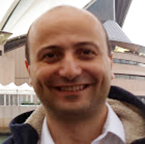 Dr. Kemal Akkaya is a professor in the Department of Electrical and Computer Engineering with a joint courtesy appointment in the School of Computer and Information Sciences at Florida International University. He received his doctorate in Computer Science from University of Maryland Baltimore County in 2005 and joined the department of Computer Science at Southern Illinois University (SIU) as an assistant professor. Dr. Akkaya was an associate professor at SIU from 2011 to 2014. He was also a visiting professor at The George Washington University in Fall 2013.
Dr. Kemal Akkaya is a professor in the Department of Electrical and Computer Engineering with a joint courtesy appointment in the School of Computer and Information Sciences at Florida International University. He received his doctorate in Computer Science from University of Maryland Baltimore County in 2005 and joined the department of Computer Science at Southern Illinois University (SIU) as an assistant professor. Dr. Akkaya was an associate professor at SIU from 2011 to 2014. He was also a visiting professor at The George Washington University in Fall 2013.
Dr. Akkaya leads the Advanced Wireless and Security Lab (ADWISE) in the ECE Dept. His current research interests include security and privacy, security and privacy, internet-of-things, and cyber-physical systems. Dr. Akkaya is a senior member of IEEE. He is the area editor of Elsevier Ad Hoc Network Journal and serves on the editorial board of IEEE Communication Surveys and Tutorials. Dr. Akkaya was the General Chair of IEEE LCN 2018 and TPC Chair for IEEE ICC Smart Grid Communications. He has published over 230 papers in peer reviewed journal and conferences. He was listed among the top 2% scientists in the world according to a Stanford University study in 2019. Dr. Akkaya received FIU Faculty Senate Excellence in Research Award in 2020. He has also received “Top-Cited” article award from Elsevier in 2010.
 Eyuphan Bulut is an Associate Professor in the CS department at the Virginia Commonwealth University. His responsibilities are teaching, research, service, and mentoring students. His research interests include mobile and pervasive computing, cyber-physical systems, social networks, wireless charging, cyber security, Internet of Things (IoT), device-free WiFi sensing, network data mining and learning.
Eyuphan Bulut is an Associate Professor in the CS department at the Virginia Commonwealth University. His responsibilities are teaching, research, service, and mentoring students. His research interests include mobile and pervasive computing, cyber-physical systems, social networks, wireless charging, cyber security, Internet of Things (IoT), device-free WiFi sensing, network data mining and learning.
Industry specialties include: Mobile Packet Core (3G, LTE) gateways (GGSN, PGW, SGW, MME, SGSN, SAEGW, HA, IPSG), Femtocell gateways (HNB-GW, HeNB-GW), IMS, WiFi Offloading (ePDG, SaMOG, eWAG), Network protocols and models. Real traffic analysis and modeling. Cisco ASR 5000, ASR 5500, QvPC-SI, QvPC-DI.
 Ken Kaminski is the Director of Security for Private Networks for Ericsson Market Area North America responsible for Cyber security for Mission Critical Mobile Networks including Department of Defense, Military/Public Safety, and Electric Power Utilities that require expertise in multiple security domains across the RAN Networks, Transport, and Core Digital Services areas. He defines and analyzes cybersecurity solutions for the next generation of Mission Critical communications systems based on 5G/4G technology. He works with government agencies, standards bodies, industry committees and similar groups in helping to further work in the field of networking and security while providing proper representation of Ericsson.
Ken Kaminski is the Director of Security for Private Networks for Ericsson Market Area North America responsible for Cyber security for Mission Critical Mobile Networks including Department of Defense, Military/Public Safety, and Electric Power Utilities that require expertise in multiple security domains across the RAN Networks, Transport, and Core Digital Services areas. He defines and analyzes cybersecurity solutions for the next generation of Mission Critical communications systems based on 5G/4G technology. He works with government agencies, standards bodies, industry committees and similar groups in helping to further work in the field of networking and security while providing proper representation of Ericsson.
Prior Ken had been with Cisco Systems for 24 years with 23 of those being in Technical Solutions Engineering. He was the Network Security Technical Solutions Architect for the Americas East Global Enterprise Segment specializing in Identity Management Systems, Network Visibility/Segmentation & Security, Network/Data Center and Cloud Security for large enterprise and global accounts. He had been a member of the Security Field Advisory Board at Cisco and a primary presenter on Security to Cisco’s North American partners for many years. He teaches and speaks often on security related topics including CiscoLive and other industry forums.
Prior to that, he was the Senior Systems Engineer for a startup company in the carrier ATM switching market. He was also a Telecommunications Officer in the US Army leaving the service as a Forward Signal Unit Company Commander. Ken has his CISSP, GCFA, GPEN, GAWN, GMOB, GPYC, GMON, and GCIA along with a Bachelor and Masters degrees from Boston University.
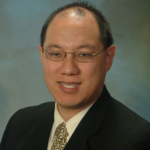 Raymond Shen, PhD, is Director of 5G/6G/Cyber Government Solutions at Keysight Technologies. In this role he leads Keysight’s vast portfolio of end-to-end 5G and 6G test and security solutions for defense and government. He also leads Keysight’s Cybersecurity and spectrum monitoring solutions, managing solutions that include handheld, outdoor, and modular platforms. He has over 24 years of experience in spectrum monitoring, wireless signals, and security, with particular expertise in cellular signals. Shen has a BS EE from Caltech and a MS EE and PhD EE from Stanford University, where his PhD thesis was in the area of neural networks.
Raymond Shen, PhD, is Director of 5G/6G/Cyber Government Solutions at Keysight Technologies. In this role he leads Keysight’s vast portfolio of end-to-end 5G and 6G test and security solutions for defense and government. He also leads Keysight’s Cybersecurity and spectrum monitoring solutions, managing solutions that include handheld, outdoor, and modular platforms. He has over 24 years of experience in spectrum monitoring, wireless signals, and security, with particular expertise in cellular signals. Shen has a BS EE from Caltech and a MS EE and PhD EE from Stanford University, where his PhD thesis was in the area of neural networks.
 Rear Admiral (ret.) David Simpson is a professor of practice with over thirty years of experience in the operation, procurement and policy of advanced technology products and services. His teaching experience includes MBA-level courses in Leadership and Ethics and MIT/ACIS courses in Cybersecurity for Business Leaders.
Rear Admiral (ret.) David Simpson is a professor of practice with over thirty years of experience in the operation, procurement and policy of advanced technology products and services. His teaching experience includes MBA-level courses in Leadership and Ethics and MIT/ACIS courses in Cybersecurity for Business Leaders.
Prior to joining Virginia Tech, Professor Simpson served as the Chief of the Public Safety and Homeland Security Bureau for the Federal Communications Commission (FCC). He leads a private consulting practice covering the Telecommunications, Defense and Public Safety sectors. His Flag Officer Assignments in the Navy include Senior Procurement Executive and Vice Director of the Defense Information Systems Agency, Director of Navy Networks and CIO/J6 for U.S. and Coalition Forces in Iraq. He served over thirty years in the Navy in technology leadership positions around the world.
His education includes Executive Development from UNC Chapel Hill, Flagler School of Management (2008), M.S. in Systems Technology from Naval Postgraduate School (1993), and B.S. in Mechanical Engineering from U.S. Naval Academy (1982).

